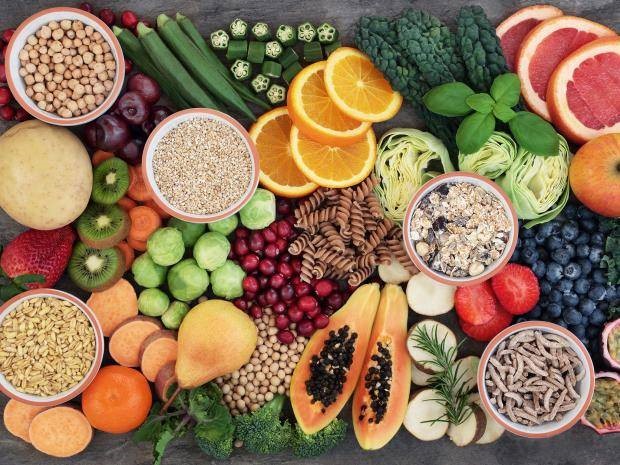Fibre, Prebiotics and Probiotics… What do we really know? – by APD Celia Innerarity
There has been much in the media in recent times about bacteria, gut health, our poo and what it says about us. If you throw in the input of social media – the amount of information can be extremely overwhelming. What is the real deal on all of this and how can we practically relate it to our own health?
What actually is dietary fibre? A simple definition is dietary fibre includes all types of whole plant based foods that resist digestion in the small intestine and have observable health benefits. As such, we get fibre from eating a higher plant-based diet, i.e. legumes, cereals, fruit and veggies.
There are three types of fibre that we should aim to include in our daily diet which can benefit our digestion and bowel health:
1. Soluble fibre e.g. fruit, oats, peas, psyllium
2. Insoluble fibre e.g. nuts, seeds and skins of fruit
3. Resistant starch e.g. unprocessed grains, unripe bananas and potatoes
 What do we actually know about the health benefits of fibre?
What do we actually know about the health benefits of fibre?
– More fibre in the diet may positively change gut bacteria and improve the function of our immune system through promoting increased probiotics (good bacteria) and prebiotics (indigestible plant foods that feed the good bacteria in your gut and help to keep them healthy)
– Increasing plant foods in our diet boosts the diversity of our probiotics or gut bugs which improve digestion and overall good health
– Probiotics work by competing with and destroying disease causing bacteria e.g. in the gut, to enhance your immune system
– Helps in prevention and treatment of various health conditions and diseases such as gastrointestinal infections, irritable bowel syndrome, bad breath, food allergies and intolerances among others
– Prebiotics are used by the bacteria to help boost energy and produce important nutrients we need for maintenance of health
– There have been consistent scientific breakthroughs over the years indicating that eating more dietary fibre is associated with a reduced risk of:
– Cardiovascular disease (CVD)
– Type 2 diabetes
– Certain types of cancers e.g. colorectal cancer
– Helps in the prevention of constipation by increasing volume and frequency of bowel movement
– Helps people with diabetes control their blood glucose levels by slowing the release of sugar into the blood
– Helps to lower our LDLs or bad cholesterol levels and improve weight control
The largest study done on human microorganisms found:
– People with a higher plant-based diet had higher resistance to antibiotics
– Strong connections between the makeup of the gut’s bacteria and mental illnesses, including anxiety, schizophrenia, bipolar disorder and post-traumatic stress disorder
Essentially, having more fibre in the diet has been linked with achieving and maintaining better health and digestive function. However, worldwide, people are not consuming enough dietary fibre. This is also true in Australia, where the estimated intake is approximately 20 – 25g fibre per day. The recommended amount of daily fibre for adults is only 25 to 30g daily. However, it is very important that you drink enough water as well as consuming enough fibre, so that the benefits can be fully achieved, as drinking water prevents abdominal discomfort and constipation.
What are some simple ways of including more fibre in our diet?
– Add at least one veggie to each meal
– Use nuts, fruits or wholemeal crackers for your morning and / or afternoon tea
– Have cereals for breakfast that include barley, wheat or oats
– Include brown rice, brown bread, wholemeal and multigrain breads in your diet
– Eat the skins of fruit and potatoes rather than throwing them away
There is still a lot to learn about fibre, gut bacteria and gut health. The research clearly shows that including fibre in our diet is beneficial for our overall health. Why not give it a go?
